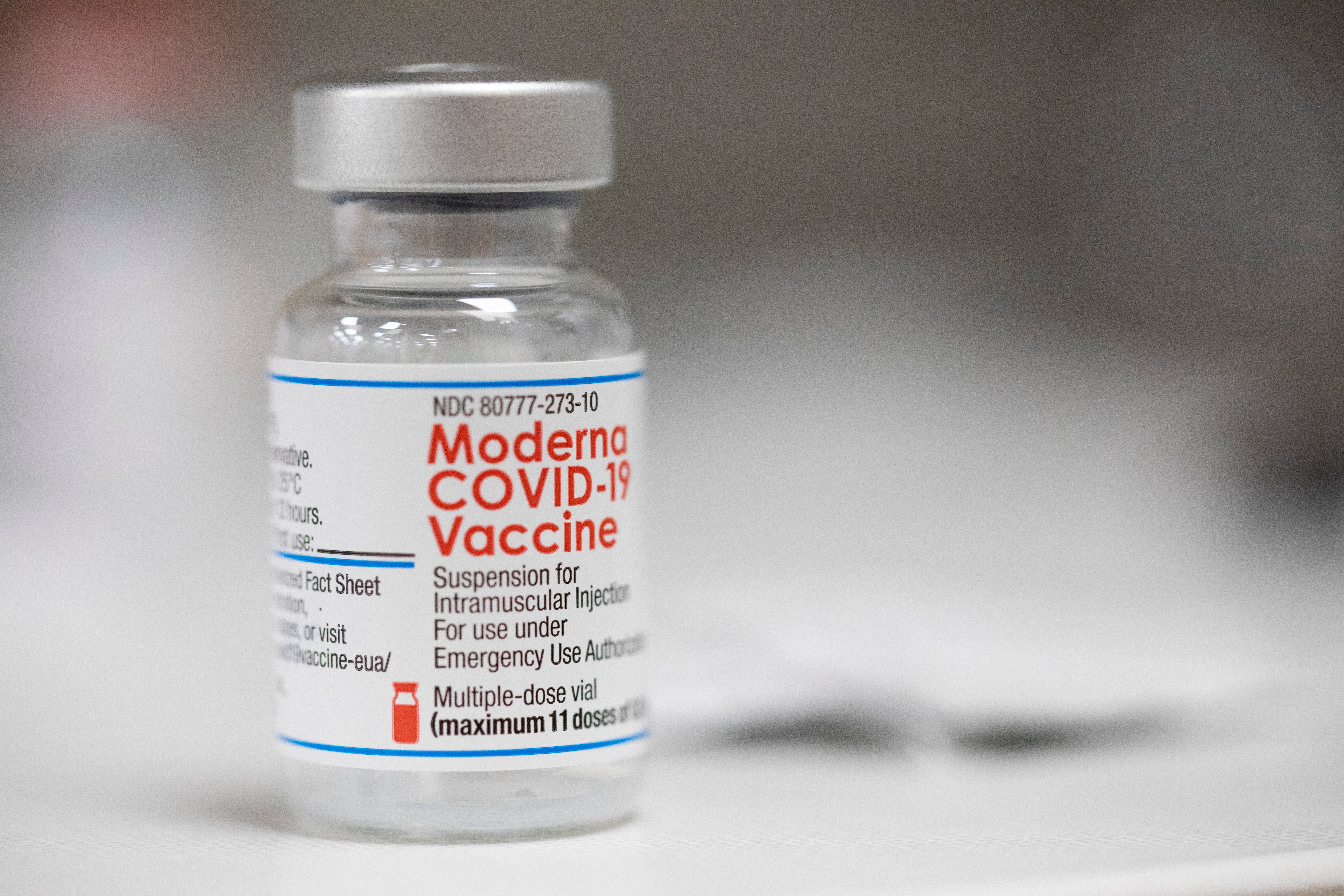FDA advisers consider Moderna's COVID shots for older kids
A government advisory panel is meeting to decide whether to recommend a second brand of COVID-19 vaccine for school-age children and teens

Your support helps us to tell the story
From reproductive rights to climate change to Big Tech, The Independent is on the ground when the story is developing. Whether it's investigating the financials of Elon Musk's pro-Trump PAC or producing our latest documentary, 'The A Word', which shines a light on the American women fighting for reproductive rights, we know how important it is to parse out the facts from the messaging.
At such a critical moment in US history, we need reporters on the ground. Your donation allows us to keep sending journalists to speak to both sides of the story.
The Independent is trusted by Americans across the entire political spectrum. And unlike many other quality news outlets, we choose not to lock Americans out of our reporting and analysis with paywalls. We believe quality journalism should be available to everyone, paid for by those who can afford it.
Your support makes all the difference.A government advisory panel met Tuesday to decide whether to recommend a second brand of COVID-19 vaccine for school-age children and teens.
The Food and Drug Administration's outside experts will vote on whether Moderna's vaccine is safe and effective enough to give kids ages 6 to 17. If the panel endorses the shot and the FDA agrees, it would become the second option for those children, joining Pfizer's vaccine.
The same expert panel will meet Wednesday to consider tot-sized shots from Moderna and Pfizer for the littlest kids, those under 5.
Moderna's COVID-19 vaccine has long been available for adults in the U.S. and elsewhere and dozens of countries offer it to children, too. In the U.S., children ages 12 to 17 would get two full-strength doses; ages 6 to 11 would get half-sized doses.
The FDA held up Moderna’s teen vaccine for months while it investigated a rare side effect, heart inflammation. That’s mostly a risk for teen boys and young men, and also can occur with the Pfizer vaccine. Moderna got extra scrutiny because its shots are a far higher dose..
In their review, FDA scientists said there were no confirmed cases of the heart inflammation in Moderna's kid studies. But experts say the studies may have had too few participants for a rare side effect like that to appear.
“It’s just not enough people in the clinical trials to detect” the problem if it’s occurring, said Dr. Jesse Goodman of Georgetown University, a former FDA vaccine chief, in a call with reporters earlier this week.
The FDA analysis concluded that two doses of Moderna are effective in preventing symptomatic COVID-19 illness in teens and younger kids, with the levels of virus-fighting antibodies comparable to those developed in young adults.
Vaccine effectiveness was estimated at 93% for the 12-17 group, and 77% for the younger group. However, the research was done when earlier versions of the coronavirus were causing most U.S. infections, and it's not clear how well they work against more recent variants.
The FDA review said it was likely a booster shot would be needed, as is now recommended for children vaccinated with Pfizer's shots, as well as for all adults.
How much demand there will be for Moderna's shots isn't clear. Teens became eligible a year ago for Pfizer's vaccine, which uses the same technology, and only 60% have gotten two doses. Shots for younger kids started in November; about 29% have been vaccinated, according to the Centers for Disease Control and Prevention.
If the FDA authorizes Moderna shots for teens and schoolchildren, the matter moves next to the CDC, which makes recommendations about vaccinations to doctors and the public. A CDC spokesperson said the agency is not expected to take up the question until later this month.
___
The Associated Press Health and Science Department receives support from the Howard Hughes Medical Institute’s Department of Science Education. The AP is solely responsible for all content.